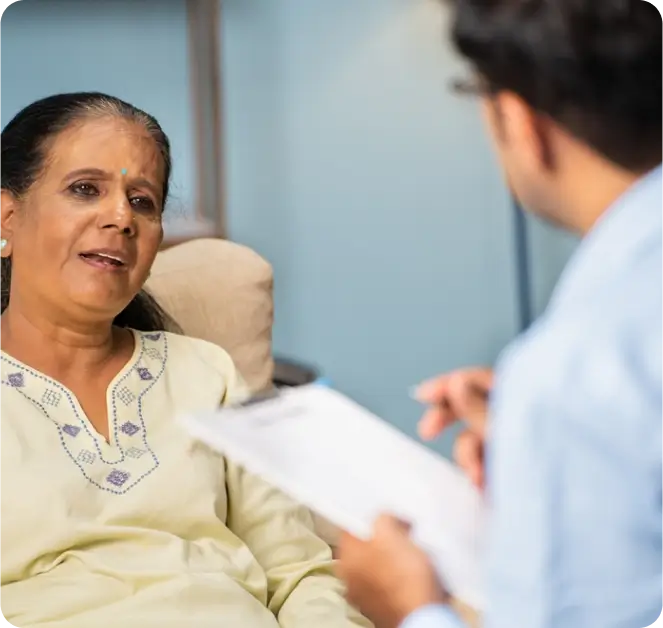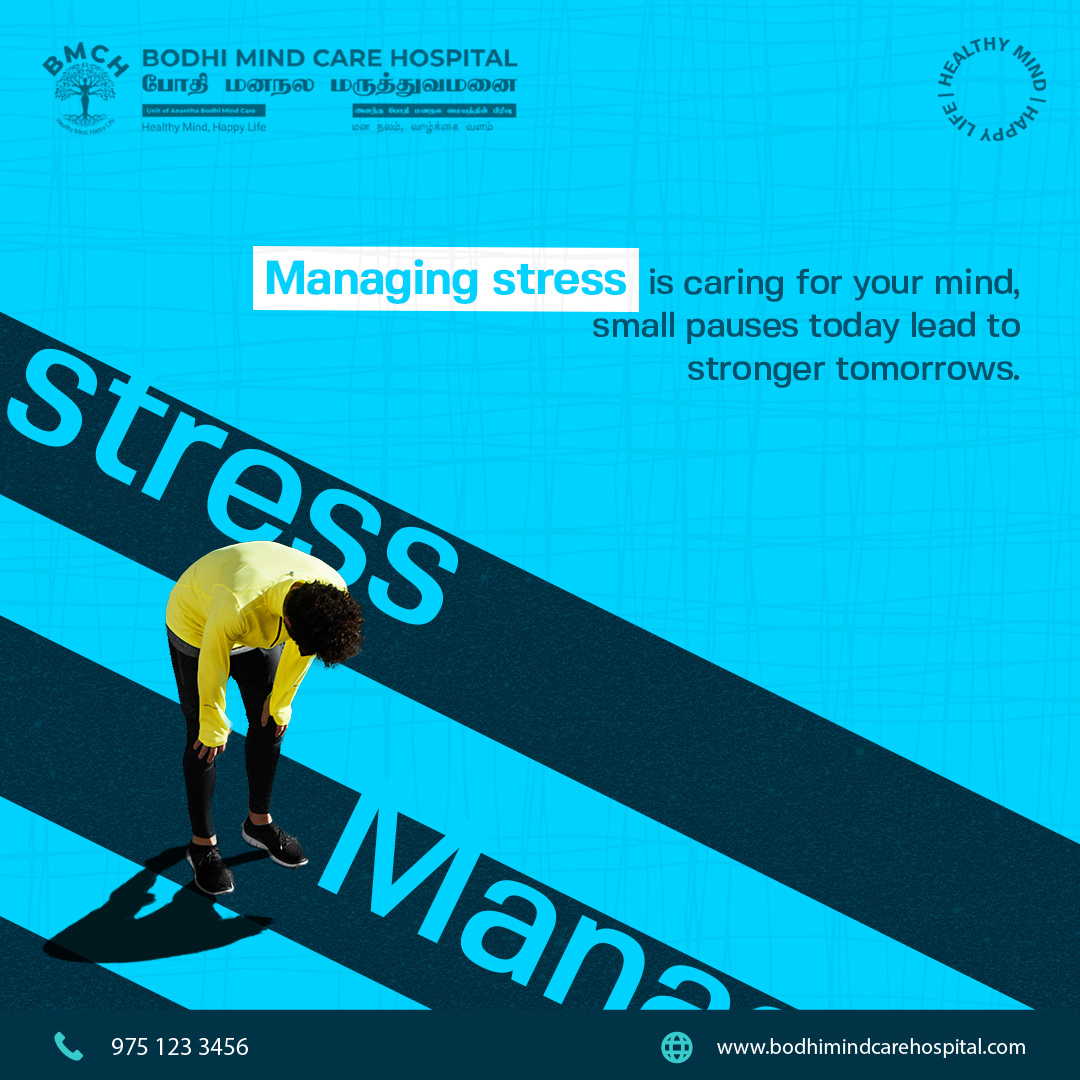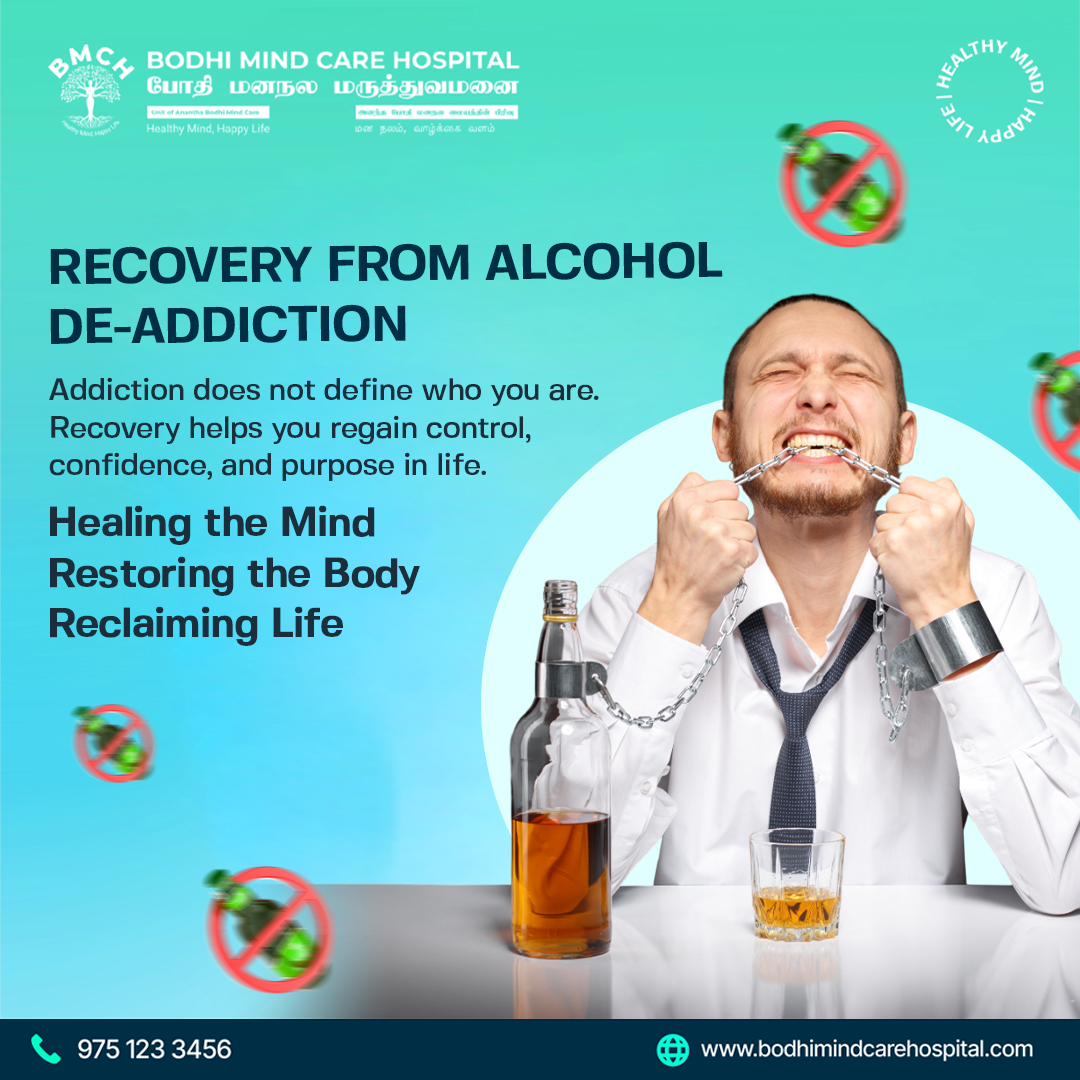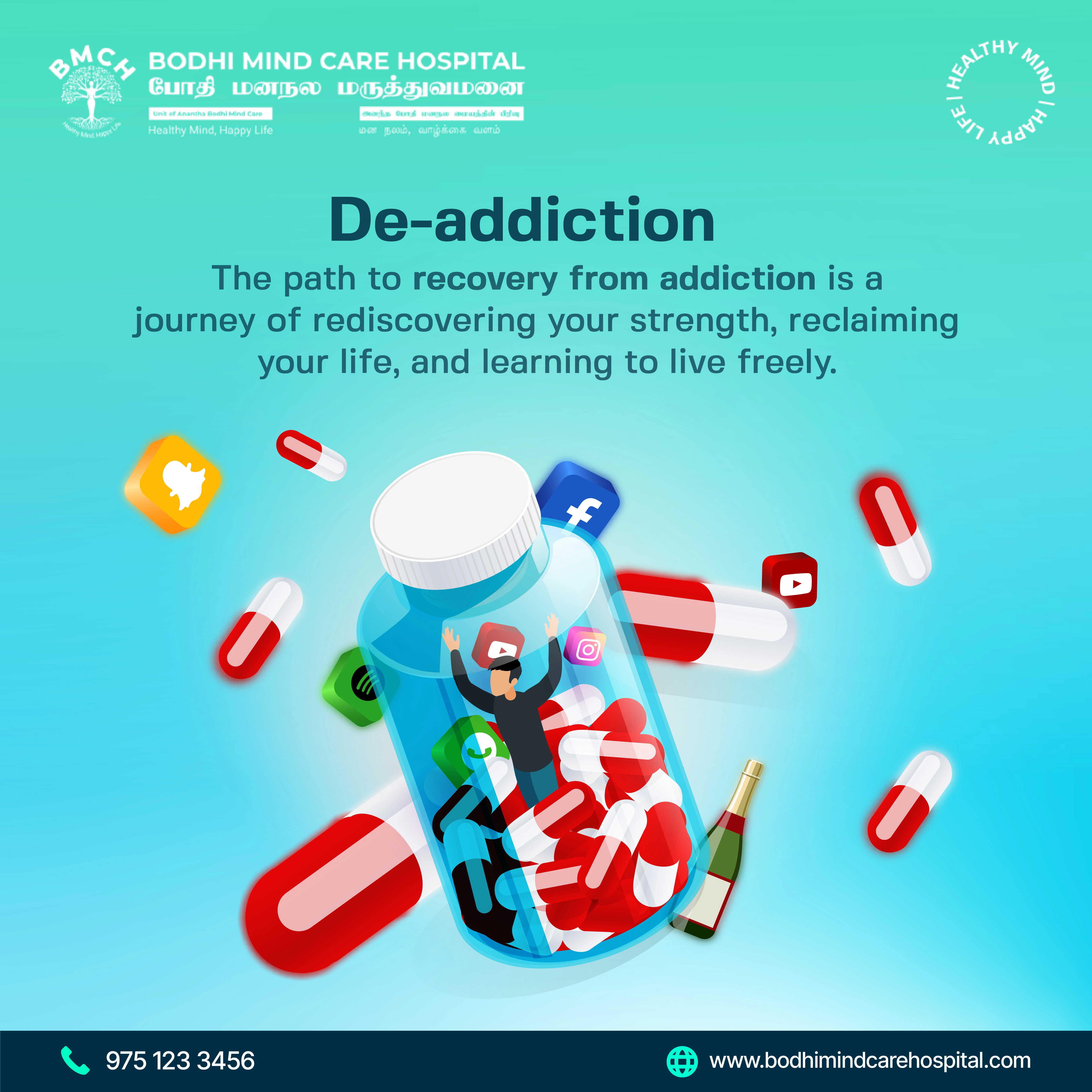About BMCH
Bodhi Mind Care Hospital
Welcome to Bodhi Mind Care Hospital (BMCH), your guardian through the path to mind well-being. We prioritize your mind, thoughts, feelings, and emotions. We are here to manage your mind related concerns. Let’s Stand With You In This Journey Of Mind Wellbeing.
Our Founder:
In 2024, Dr. Raja Natarajan founded “Bodhi Mind Care Hospital” in Coimbatore, India, with a vision to offer holistic mind health and wellness services, combining traditional therapies with modern psychiatric care.
Dr. Raja Natarajan is a distinguished consultant psychiatrist with over 25 years of experience in the United Kingdom’s National Health Service (NHS) and private practice. Dr. Raja Natarajan is dedicated to making mind health services accessible and empowering individuals to lead healthier, happier lives.
Read the Story
About BMCH
Bodhi Mind Care Hospital
Welcome to Bodhi Mind Care Hospital (BMCH), your guardian through the path to mind well-being. We prioritize your mind, thoughts, feelings, and emotions. We are here to manage your mind related concerns. Let’s Stand With You In This Journey Of Mind Wellbeing.
Our Founder:
In 2024, Dr. Raja Natarajan founded “Bodhi Mind Care Hospital” in Coimbatore, India, with a vision to offer holistic mind health and wellness services, combining traditional therapies with modern psychiatric care.
Dr. Raja Natarajan is a distinguished consultant psychiatrist with over 25 years of experience in the United Kingdom’s National Health Service (NHS) and private practice. Dr. Raja Natarajan is dedicated to making mind health services accessible and empowering individuals to lead healthier, happier lives.
Read the StoryTreatments
Evidence-Based Treatment
We’re here to offer holistic care for your mind health with thoughtfully designed facilities
Book an AppointmentServices
A Calmer Tomorrow, with
Mind Care Available to All
Video Consultation
At Bodhi Mind Care Hospital (BMCH), we understand that accessing proper help for mind related problems can be difficult and challenging. We have an easy and convenient way for you to access help in a confidential and safe setting - online video consultation.
Online video consultation is an easy and an effective way to get help and support from our experienced and dedicated team of mind health professionals including psychiatrists, psychologists and nurses at Bodhi Mind Care Hospital.
We offer same day appointments for urgent crisis situations or planned appointments based on your availability.
Contact Now
Emergency Care
At Bodhi Mind Care Hospital (BMCH), we understand that accessing proper help for mind related problems can be difficult and challenging. We have an easy and convenient way for you to access help in a confidential and safe setting - online video consultation.
Online video consultation is an easy and an effective way to get help and support from our experienced and dedicated team of mind health professionals including psychiatrists, psychologists and nurses at Bodhi Mind Care Hospital.
We offer same day appointments for urgent crisis situations or planned appointments based on your availability.
Contact Now
In patient team(IPT)
At Bodhi Mind Care Hospital (BMCH), we understand that accessing proper help for mind related problems can be difficult and challenging. We have an easy and convenient way for you to access help in a confidential and safe setting - online video consultation.
Online video consultation is an easy and an effective way to get help and support from our experienced and dedicated team of mind health professionals including psychiatrists, psychologists and nurses at Bodhi Mind Care Hospital.
We offer same day appointments for urgent crisis situations or planned appointments based on your availability.
Contact Now
Book Appointment
Reach out and take the first step towards recovery.
TESTIMONIALS
Recovery Stories
A testament of holistic recovery that opened pathways to a healthy and happy life.
FAQ’s
Everything you need to know about the Services.
What types of treatments does BMCH offer?
BMCH offers a wide range of treatments, including specialized care for conditions like anxiety, autism, addiction, stress, psychosis, and more. We also provide comprehensive diagnostic services, personalized treatment plans, and advanced therapies.
Is my treatment personalized at BMCH?
Yes, at BMCH, we believe in providing personalized treatment plans tailored to your specific needs. Our medical experts assess your condition thoroughly to create a plan that is most effective for your health goals.
What is the process for follow-up care after treatment?
After treatment, we offer comprehensive follow-up care through consultations, monitoring progress, and adjusting treatment plans as necessary. Our team will ensure that you are supported throughout your recovery.
What should I expect during my first visit to BMCH?
During your first visit, our team will conduct a comprehensive evaluation, which may include medical history, physical examination, and necessary diagnostic tests. We will then discuss your treatment options and create a personalized care plan.
Still have questions?
Can’t find the answer you’re looking for? Please chat to our friendly team.


















